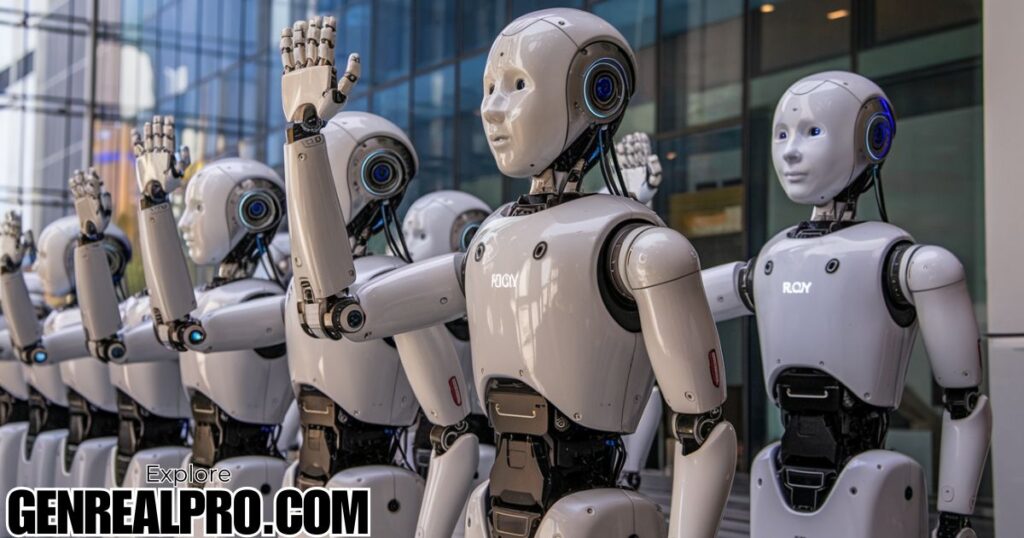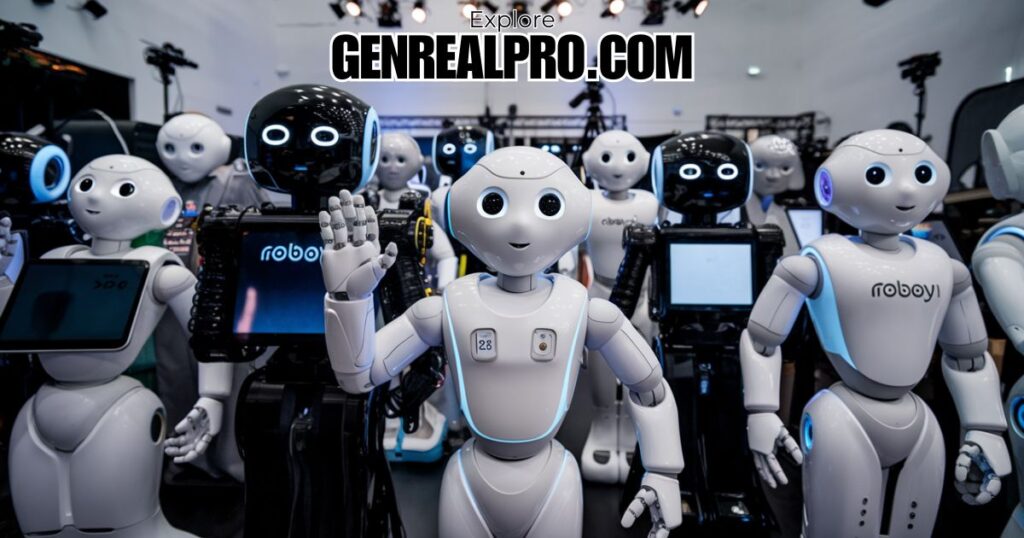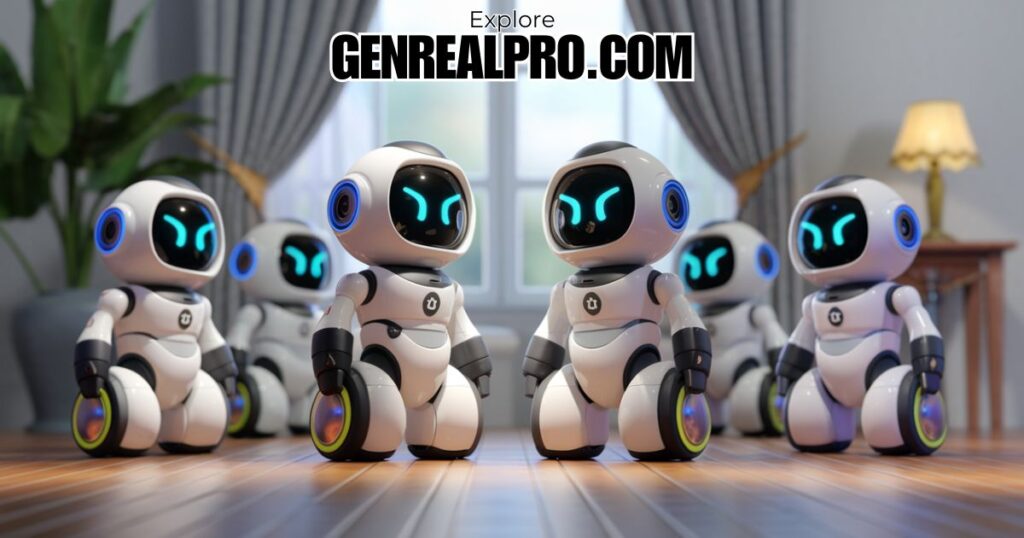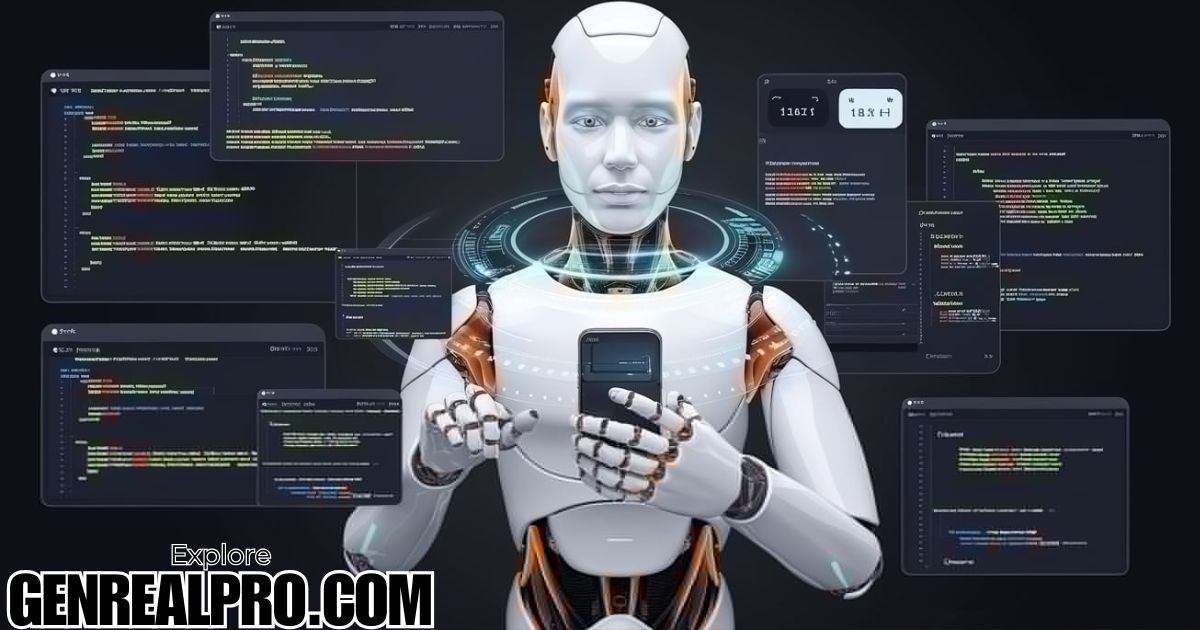In the rapidly evolving landscape of mobile development, generative AI products have emerged as game-changing tools that are reshaping how developers create, optimize, and innovate.
This comprehensive guide delves deep into the intricate world of tailoring GenAI solutions for the diverse ecosystem of mobile developers.
Introduction to GenAI and Mobile Development
The mobile development landscape is undergoing a revolutionary transformation, powered by the incredible potential of generative AI technologies. Machine learning algorithms are no longer just supporting tools—they’re becoming essential partners in the software creation process.
According to recent industry research, mobile development is projected to grow to a $407.31 billion market by 2026, with AI-powered tools playing a pivotal role in this expansion. Developers across various skill levels and professional backgrounds are discovering how GenAI products can dramatically enhance their productivity and innovation capabilities.
Key GenAI Impact Statistics
| Metric | 2023 Data | Projected 2026 Growth |
| Mobile Development Market | $254.56 billion | $407.31 billion |
| AI Tool Adoption Rate | 38% | 65% |
| Productivity Increase | 22-35% | 40-55% |
Understanding Mobile Developer Personas
Developers are not a monolithic group. Each mobile developer brings unique skills, challenges, and expectations to their work. Let’s explore the diverse personas that populate this dynamic ecosystem:
1. Rookie Developers
- Fresh graduates entering the tech world
- Seeking learning-intensive tools
- Budget-conscious
- Require intuitive, educational AI interfaces
2. Experienced Enterprise Developers
- Work on complex, large-scale projects
- Need robust, scalable development tools
- Prioritize security and integration capabilities
- Demand sophisticated machine learning algorithms
3. Freelance and Independent Developers
- Manage multiple project types
- Require flexible, cost-effective solutions
- Value quick adaptation and versatility
- Seek customization features that maximize efficiency
4. Startup Tech Innovators
- Rapid prototyping is their primary goal
- Limited resources but high creativity
- Need agile, intelligent code optimization tools
- Prioritize speed-to-market solutions
Identifying Needs and Pain Points

Mobile developers face a complex landscape of challenges that demand innovative solutions.
From struggling with intricate code generation to managing steep learning curves, these professionals need intelligent tools that understand their unique requirements.
GenAI products can address critical pain points like performance bottlenecks, integration complexity, and skill gaps by offering adaptive, context-aware assistance that transforms traditional development workflows.
Every developer persona encounters unique challenges that generative AI tools can address:
- Code Generation Complexity: Generating clean, efficient code across different project scales
- Learning Curve Management: Bridging skill gaps through intelligent, adaptive learning systems
- Performance Optimization: Automatically identifying and resolving performance bottlenecks
- Integration Challenges: Seamlessly connecting with existing development ecosystems
Customization Features in GenAI Products
Modern mobile development AI thrives on personalization. Customization features in GenAI products go beyond one-size-fits-all approaches, offering developers tailored experiences that adapt to their specific skill levels, project requirements, and technological ecosystems.
These intelligent systems provide context-aware code suggestions, framework-specific optimizations, and real-time performance insights that feel like having a seasoned mentor embedded directly in the development environment.
Successful GenAI products offer tailored experiences that speak directly to individual developer needs:
Adaptive Learning Interfaces
- Personalized code suggestion mechanisms
- Skill-level targeted content delivery
- Real-time performance feedback
- Contextual learning recommendations
Intelligent Code Generation
- Language-specific optimizations
- Framework-aware code snippets
- Automated best practices implementation
- Rapid prototype development support
Best Practices for Tailoring GenAI Products

Successful GenAI products are built on a foundation of user-centric design and ethical considerations. The most effective approaches involve deep research into developer personas, creating flexible and modular interfaces that can seamlessly adapt to different skill levels and project complexities.
Implementing comprehensive onboarding processes, maintaining transparency in AI algorithms, and establishing continuous feedback mechanisms are crucial for developing tools that truly resonate with mobile developers.
To create truly effective mobile development AI solutions, consider these critical strategies:
- User-Centric Design
- Conduct extensive developer persona research
- Create flexible, modular AI interfaces
- Implement continuous feedback loops
- Ethical AI Development
- Transparent algorithm explanations
- Privacy-first approach
- Bias mitigation strategies
- Comprehensive Onboarding
- Interactive tutorials
- Skill assessment tools
- Personalized learning paths
Case Studies: Success Stories
Real-world implementations demonstrate the transformative power of tailored GenAI solutions. Companies like TechInnovate have developed AI platforms that dramatically reduce learning curves, accelerate project completion, and enhance overall developer satisfaction.
These success stories showcase how intelligent, personalized AI assistants can bridge skill gaps, provide targeted support, and ultimately empower developers across various experience levels to achieve more innovative and efficient outcomes.
Case Study: TechInnovate AI Development Platform
Challenge: Supporting diverse developer skill levels Solution: Adaptive AI assistant with multi-tier support Results:
- 45% faster project completion
- 60% reduction in junior developer learning time
- Increased developer satisfaction by 75%
Challenges in Tailoring GenAI Products
Despite their potential, creating tailored GenAI solutions is fraught with complexities. Rapid technological evolution, diverse developer requirements, and the need to maintain high-quality user experiences present significant hurdles.
Developers must balance generalization with deep personalization, ensuring that AI tools remain flexible enough to support multiple use cases while still providing targeted, meaningful assistance that doesn’t compromise on performance or reliability.
Despite immense potential, tailoring GenAI solutions isn’t without obstacles:
- Rapidly changing technological landscapes
- Diverse and complex developer requirements
- Maintaining high user experience standards
- Balancing generalization with personalization
The Future of GenAI in Mobile Development

The horizon of mobile development is being reshaped by increasingly sophisticated machine learning algorithms and AI technologies. Future GenAI products will likely feature hyper-personalized assistants that can predict developer needs, offer proactive suggestions, and seamlessly integrate across different platforms and programming environments.
We can anticipate more intelligent, intuitive tools that not only assist in coding but also help developers continuously learn, adapt, and innovate.
Emerging trends point towards:
- More sophisticated machine learning algorithms
- Hyper-personalized AI assistants
- Enhanced predictive coding capabilities
- Seamless cross-platform integration
Conclusion: Embracing Diversity in Mobile Development
Generative AI products are not just tools—they’re transformative partners for mobile developers worldwide. By understanding and addressing diverse developer personas, we can create more inclusive, powerful, and intuitive AI solutions.
The future of mobile development is collaborative, intelligent, and wonderfully diverse.
Expert Quote:
“GenAI is not about replacing developers, but empowering them to achieve unprecedented levels of creativity and efficiency.” – Tech Innovation Summit, 2023

Taylor Swift is the founder and lead writer behind the independent blog genrealpro.com










